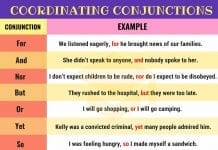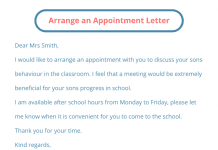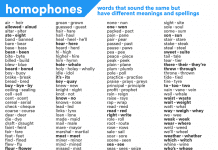
Essay writing is a fundamental skill that every student must master. In this comprehensive guide, we will dive into the art of essay writing, offering valuable tips and strategies to help you excel in your academic endeavors.
Essays are written to inform, persuade, or entertain the reader. It’s important to clarify the purpose of your essay before you start writing. Consider your audience’s expectations, knowledge level, and interests. Tailor your essay to cater to their needs and engage them effectively.
Every essay should have a clear and concise thesis statement that outlines the main point or argument of your essay. The pre-writing phase involves choosing a topic, conducting research, and creating an outline. The writing phase includes crafting a captivating introduction, developing body paragraphs that support your thesis, using transitional words and phrases, and concluding the essay effectively. The post-writing phase involves revising and editing your essay for clarity, coherence, and conciseness. It’s also helpful to seek feedback from peers or professors.
Tips for successful essay writing include crafting a strong thesis statement, effective planning, concise writing, proper citation, and referencing, engaging the reader, revising and editing, seeking feedback, and reading widely.
Key Takeaways:
- Clarify the purpose of your essay before you start writing.
- Tailor your essay to cater to your audience’s expectations and interests.
- Create a clear and concise thesis statement that outlines your main argument.
- Invest time in pre-writing activities like topic selection, research, and outlining.
- Craft a captivating introduction and develop body paragraphs that support your thesis.
How To Start An Essay
“The point of the essay is to change things”, Edward Tufte.
Starting an essay is often the toughest part of the writing process, especially if you are doing it at the last minute. With all the essay topics making a crazy dance inside your head, it’s hard to keep your thoughts straight. The easiest way to go about starting an essay is to follow a certain plan.
Even if you are not a big planning guru, quick essay writing is only possible with the right approach. Take a few seconds to read this article, because it can help you save hours of work and a ton of nerves.
What Is an Essay? Identifying the Type

Before you start writing an essay, define the term. Otherwise, you might end up completing the wrong assignment. An essay is a brief non-fictional piece of writing, which revolves around a certain point.
The variety of essay topics is hard to describe. They can range from love to political science. The size of the essay is usually between 500 and 3000 words. However, artificial shortening or lengthening is a bad idea. This word range is sufficient to cover the topic at length.
There are four most common types of essays:
- Narrative essay – the writer talks about first-hand experiences. Such essays are written in the first person point of view, which is usually appealing to the readers since it makes them feel like part of the story.
- Descriptive essay – the writer describes an object (it can be anything from an apple to WWII) or memory with his/her own words while trying to get a deeper meaning through to the reader.
- Expository essay – this may be the easiest essay type for some students since it doesn’t require any personal narrative and real-life experience sharing. The writer analyzes a certain topic using facts and examples. The most popular expository essay example is “How to” articles.
- Persuasive essays – This essay lists the facts, stats, and examples similar to the way it’s done in the expository essay. However, the main goal of such an essay is to convince the reader of a certain point of view.
Once you understand what type of paper you need to write, you can go on to the next step.
Tips for Writing an Effective Essay Introduction
The introduction of an essay is crucial as it sets the tone for the rest of the paper and catches the reader’s attention. To ensure that your essay introduction is engaging and compelling, consider the following tips:
1. Begin with a Captivating Hook
Start your essay with a captivating hook that grabs the reader’s interest right away. This could be an intriguing anecdote, a thought-provoking quote, a compelling question, or a surprising fact. A strong hook will pique the reader’s curiosity and make them want to read further.
2. Provide Relevant Background Information
After hooking the reader’s attention, provide some background information that establishes the relevance of your topic. This will help the reader understand the context of your essay and why it is important. Be concise and focused, providing just enough information to create a foundation for your main argument.
3. Introduce Your Clear Thesis Statement
Every essay should have a clear thesis statement that outlines the main point or argument you will be making. Introduce your thesis statement in the essay introduction, clearly stating your position or the central idea you will be exploring in your essay. This will guide the reader and provide a roadmap for what’s to come.
By following these tips, you can craft an effective essay introduction that captures the reader’s attention and sets the stage for a compelling and well-structured essay.
Essay topics
You may be lucky (or unlucky) enough to be assigned a certain topic. Then you can skip this section and read on. For the rest of you, the help with quick topic choice is below.
- Make sure you are comfortable with the topic so you can enjoy writing the essay instead of squeezing every sentence out.
- Narrow down the topic so you can fit the information in 1000 – 3000 words.
- Be realistic about how much time you have to research the topic.
- Consider the “target audience” of your topic. Will the people you are writing for find your essay useful?
- Think about unusual essay topics. Sometimes they are the best way to enjoy writing and catch the reader’s attention.
The Structure of a Well-Written Essay
When it comes to writing an essay, having a well-structured and organized piece of writing is essential. A strong structure ensures that your ideas flow smoothly, making it easier for the reader to follow your arguments. In this section, we will explore the key elements of a well-written essay structure and provide you with practical tips to improve your essay-writing skills.
Introduction
The introduction is the first impression your essay makes on the reader, so it’s crucial to start strong. Begin with a compelling hook that grabs the reader’s attention and makes them want to continue reading. This can be a thought-provoking question, an intriguing quote, or a fascinating anecdote that relates to your topic. Remember to provide some background information to give context to your essay and lead smoothly into your thesis statement.
Your thesis statement should be clear and concise, presenting the main argument or point of your essay. It sets the direction for the entire essay and guides the reader on what to expect. Make sure your thesis statement is specific and debatable, as it will be the main focus of your essay.
Body Paragraphs
The body paragraphs make up the bulk of your essay and should each focus on a single main point or idea. Start each body paragraph with a topic sentence that introduces the main point and provides a clear transition from the previous paragraph. Support your main point with evidence, examples, or data, and explain how they relate to your thesis statement. Using transitional words and phrases throughout the body paragraphs improves the flow and coherence of your writing.
Remember to use paragraphs effectively to break up your writing and provide clarity. Each paragraph should have a clear topic and contribute to the overall argument of your essay. Consider using subheadings for longer essays to further structure and organize your ideas.
Writing the Right Hooks for An Essay
A good hook is the key to a successful essay. The hook should catch the reader’s attention and stimulate further reading. If you can write a good hook sentence or small paragraph, consider half of the job done. A hook should be smart, concise, catchy, and unique. Sounds impossible? Not if you are prepared for the job. You can find a huge variety of sample hooks on the Internet. Usually, they fall into one of the below categories.
- Quotes – This is the best bet if you are out of time. You can find a suitable quote (preferably from someone respectable) and stick it on top of your essay. Did you notice how we did it in this article?
- Anecdotes – If you know a great anecdote related to the essay topic, you are in luck. Funny stories catch the reader’s attention and hold it better than any other hooks. But be careful, bad humor is a major turn-off.
- Questions – People enjoy it when you are paying personal attention to them. That’s what you can do by using questions as hooks. See how we’ve done it at the beginning of the essay.
- Scenes – You can describe a certain scene or an incident to help a person visualize it. Some people get attracted by visualization. This is a great hook for a descriptive essay.
- Facts – Another easy hook is a fact, which can surprise the reader. Interesting facts are always appealing. For example, it takes not 24 hours but 23 hours, 56 minutes, and 4 seconds for the Earth to rotate once completely on its axis. Or.. beer is considered as a food in Bavaria on the official level. Think about which fact will surprise your readers.
- Stats – This is a great hook for expository and persuasive essay types, in which you want the reader to believe in your competence. Meanwhile, this is the second simplest hook to find after quotes. For example, at NationMonster you can compare different countries, a whelm of marketing data can be found at Statista, and global development stats are stored in Gapminder.
Drafting an Outline
If you are pressed for time, drafting an outline may seem like a useless task. Meanwhile, it can save you plenty of hassle in the future. Learning how to make a quick outline is the first step toward writing an excellent essay.
- Define the topic.
- Write an introduction (hooks).
- Form an opinion about the topic.
- Develop the argument.
- Find points to support the argument.
- Write a conclusion.
This is the simplest essay outline for further writing. Each point should have a subsection listing the information about the essay subject.
Additional Techniques for Successful Essay Writing

Writing an exceptional essay requires more than just following the basic guidelines. To truly excel in your essay writing, consider implementing these additional techniques:
Craft a Strong Thesis Statement
A well-crafted thesis statement forms the backbone of your essay. Make sure it presents a clear and debatable argument that will captivate your reader from the start.
Allocate Sufficient Time for Each Phase
Procrastination can be your worst enemy when it comes to essay writing. Set aside dedicated time for brainstorming, researching, outlining, and revising. Avoid rushed writing, as it can compromise the quality of your work.
Be Concise and Precise
Avoid unnecessary verbosity in your writing. Use concise language to convey your ideas effectively, ensuring your essay is clear and to the point. This will keep your reader engaged and make your arguments more impactful.
Follow Proper Citation and Referencing
Plagiarism is a serious offense in academic writing. Adhere to the citation style required by your institution and properly cite all sources used. This not only demonstrates your credibility but also gives credit to the original authors.
Engage Your Reader
From the very beginning, grab your reader’s attention with compelling anecdotes, quotes, or thought-provoking questions. A captivating introduction will set the tone for the rest of your essay and make it more enjoyable to read.
Embrace Revision and Editing
Revision is an essential part of the writing process. Take the time to review and refine your essay, focusing on clarity, coherence, and conciseness. This will ensure that your ideas are effectively communicated and your arguments are well-supported.
Seek Feedback
Don’t be afraid to seek feedback from professors, tutors, or peers. Their constructive criticism can help you identify blind spots and areas for improvement. Embrace this feedback as an opportunity to grow and refine your essay writing skills.
Read Widely
Expand your knowledge and vocabulary by reading extensively. Exposure to different writing styles and genres will not only broaden your perspectives but also enhance your ability to express your ideas eloquently.
FAQ
What is the purpose of an essay?
Essays are written to inform, persuade, or entertain the reader. It’s important to clarify the purpose of your essay before you start writing.
How do I tailor my essay to my audience?
Consider your audience’s expectations, knowledge level, and interests. Tailor your essay to cater to their needs and engage them effectively.
What should be included in the introduction of an essay?
The introduction of an essay should include a captivating hook, provide background information, and introduce your thesis statement.
How should I structure my essay?
Start with an introduction, develop body paragraphs that support your thesis, use transitional words and phrases, and end with a conclusion that summarizes your main points.
How can I enhance my essay-writing skills?
Craft a strong thesis statement, allocate sufficient time for each phase of the writing process, be concise, follow citation rules, engage the reader, revise and edit your essay, seek feedback, and read widely.
Source Links
- https://gsi.berkeley.edu/lewandoski-2018/
- https://medium.com/@grabmyessay/fast-essay-writing-top-5-techniques-for-efficient-and-high-quality-results-73a76aa097e9
- https://www.linkedin.com/pulse/help-essay-writing-unlocking-secrets-effective-guide-narayanan
- Linking Words: List of Sentence Connectors in English with Examples!
- 100 Transition Words for Essays: Essential Academic Writing!
Conclusion
Writing an essay is not an easy task, especially if you have a complicated topic. Knowing how to go about starting an essay can simplify the process and make it more enjoyable for the writer. There is a wide variety of interesting tips and tricks to help make your writing easier. All you have to do is do some research.
In case you are pressed for time and need an urgent essay written, you can order it from an essay writing service FastEssay.com. The service and its teams work 24 hours per day and guarantee speed and high quality regardless of the essay topic. With essay samples from professional academic writers writing will go extra fast and easy.
More:
30 Email Templates for Business Communication
FCE Exam Writing Samples and Essay Examples
Definition Essay Topics
Essential Academic Writing Examples and Phrases!
Facing Difficulties in Task 2 Essay for IELTS Written Exam




![Request for Quotation [Template] 📮 How to Write an Email Asking for a Quote?](https://www.myenglishteacher.eu/blog/wp-content/uploads/2018/11/maxresdefault-218x150.jpg)




















Hi Anastasia,
Thanks for this great work. I really get a lot of help from you. Keep on.
Thank you Stephen!
Thank you!
Interesting!